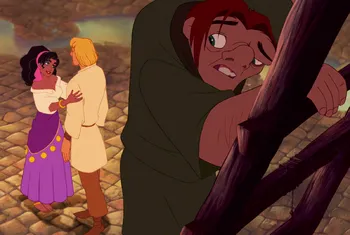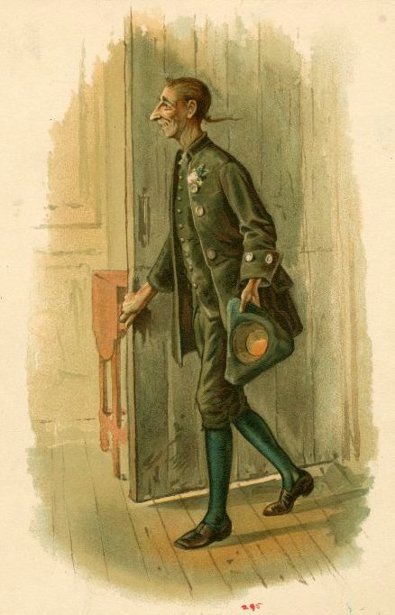The Underdogs Who Never Have Their Day: A Closer Look at Misfit Endings
"Why am I such a misfit? I am not just a nit wit! Just because my nose glows, why don't I fit in?" - Rudolph, Rudolph the Red-Nosed Reindeer
After watching A World Record Christmas and reflecting on my disappointment over the ending Hallmark bestowed upon its young autistic protagonist, Charlie Parsons, I found myself ruminating on other fictional misfits who don't fit society's ideal image of a protagonist. They, too, received disappointing outcomes in their stories. As such, I decided to compile and explore a few examples. This exercise isn't meant to be a criticism of the writers or their works. These are just my interpretations, all off the top of my head, and in no specific order.
Quasimodo

Disney movies always end happily ever after, with the beautiful princesses and handsome princes falling in love with each other. Even if the original story doesn't have a happy ending, rest assured Disney will invent one for their version. One notable exception is their adaptation of Victor Hugo's The Hunchback of Notre Dame. Quasimodo doesn't fit Disney's mold, due to his physical deformities and severe scoliosis. As such, his feelings for the beautiful Esmeralda are unrequited, and she falls in love with the handsome prince/knight/whatever that guy was.
Ichabod Crane

In Washington Irving's The Legend of Sleepy Hollow, the lanky schoolteacher, Ichabod Crane, competes with the burly ruffian, Brom Bones, in hopes of winning the heart of the lovely Katrina Van Tassel. Though Ichabod has the intellectual advantage over Brom, Katrina ultimately rejects Ichabod's brain in favour of Brom's brawn. As such, Brom and Katrina are happily wed, while Ichabod disappears from Sleepy Hollow forever, following a fateful encounter with the ghostly Headless Horseman (or Brom in disguise).
Frankenstein's monster
.jpg)
Frankenstein's monster is highly intelligent and articulate in Mary Shelley's Frankenstein, but society shuns him over his grotesque appearance. His only friend in the world is a blind man, who sees better without eyes than his peers do with them. Even his own creator, Victor Frankenstein, finds him repulsive, and denies him happiness by reneging on the promise of creating him a bride. Thus, his hatred of man seems justified. While Shelley portrayed Frankenstein's monster as a tragic, sympathetic, and complex figure, Universal instead chose to strip him of his intelligence and speech, reverting him to a lumbering, grunting monstrosity.
King Kong

In King Kong, the gargantuan gorilla, Kong, is captured from his jungle habitat by invaders and brought to New York City in chains, solely for the profit and amusement of man. Jeers and sneers turn into fear once the angry and frightened animal breaks free of his bonds, rampages throughout Manhattan, and scales the Empire State Building (or World Trade Center) with Fay Wray (or Jessica Lange) in his massive hand. Trapped atop the tower, Kong is swarmed and swiftly gunned down by aircraft, plunging to his death amid the deafening cheers and applause of the gathered crowd of onlookers, being viewed as nothing more than a monster by the real ones.
The Little Mermaid
.png)
Unlike the Disney version of The Little Mermaid, Hans Christian Andersen's original story doesn't end happily ever after. The Little Mermaid agrees to have her tongue cut out by the Sea Witch in exchange for a pair of legs, which cause her excruciating pain to use. She willingly endures this mutilation and suffering in hopes of winning the heart of the prince she rescued from drowning, as well as a soul. Unfortunately, now mute, she is unable to speak up when the prince mistakes another girl for his savior. Thus, the prince marries the wrong woman, while the Little Mermaid tragically dies. However, she's granted the chance of earning a soul in the afterlife.
Closing Thoughts
None of these fictional misfits match society's ideal image of a protagonist, and so are denied a Hollywood ending. This sucks, as the moral seems to be only a certain class deserve happiness. Nobody can control their looks, deformities, births, disabilities, species, etc. This could be the writers inserting their own social commentary on the cruelty of man. This could also be the writers inserting their own ignorance on those who are different from themselves. Either way, it's interesting to reflect on human nature, both in fiction and reality. Thank God for Shrek breaking and parodying these misfit tropes. Until next time, love, peace, and chicken grease.